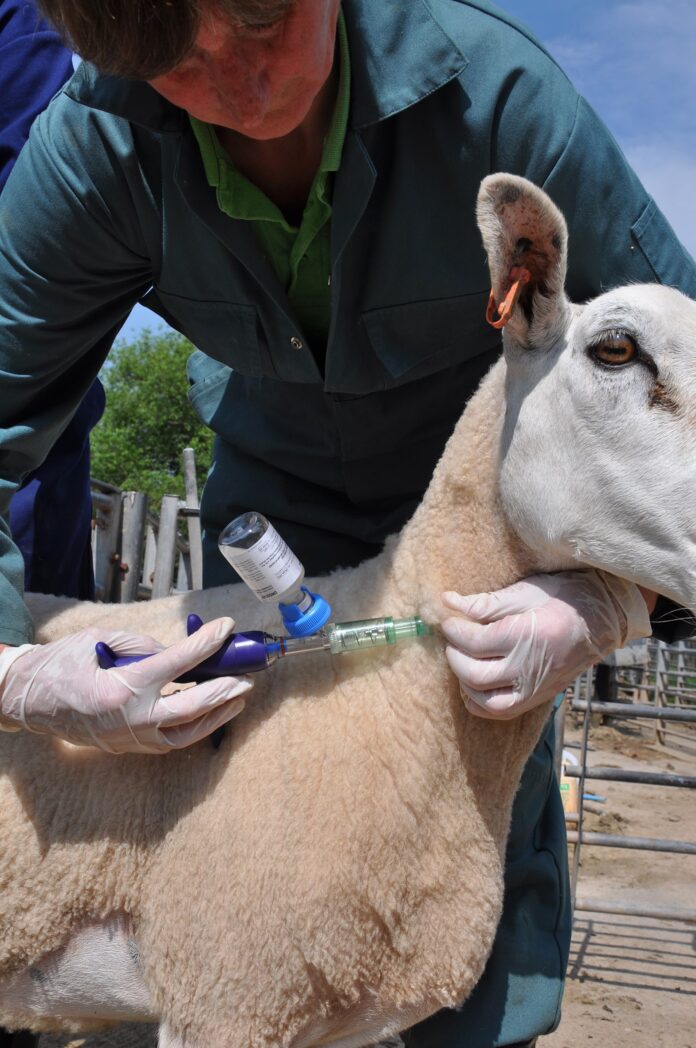MILTON KEYNES, UK, 7th March 2023 – MSD Animal Health (a division of Merck & Co., Inc., Rahway, N.J., USA (NYSE: MRK)) has demonstrated its continued support to the GB sheep industry with the launch of its 2023 FlockCheck diagnostic scheme, which allows farmers in England, Scotland and Wales to ask their vet to blood test their flock for exposure to toxoplasmosis and enzootic abortion (EAE).
Ewe reproductive failure, neonatal lamb disease and mortality are the three biggest factors limiting better flock productivity1 – with toxoplasmosis and enzootic abortion continuing to be significant causes of these unwanted flock heath issues. As in previous years, sheep farmers that experience more than 2% of their flock barren or aborting this lambing season are being encouraged to contact their vet to take advantage of the subsidised diagnostic scheme.
“Farmers can continue to take advantage of this subsidised scheme by asking their vet to take blood samples from six to eight aborted, unvaccinated ewes, or from barren ewes or ones that have produced weakly lambs,” explained MSD Animal Health veterinary adviser Dr Kat Baxter-Smith.
She added that the blood test has proved to be an extremely useful flock diagnostic tool in terms of helping to identify the potential presence of any key underlying productivity limiting disease.
“Experience has shown that the results certainly help vets and their farmer clients make more informed decisions about appropriate flock health measures.”
Annual FlockCheck blood test results consistently demonstrate that a significant proportion of aborted ewes tested have been exposed to either toxoplasmosis or EAE – and sometimes both. For example, 2022 results showed nearly 75% of 374 sheep farms had been exposed to toxoplasmosis and 18% to EAE2. This is consistent with a recent AHPA analysis showing that between 2002 and 2019, toxoplasmosis and EAE have been the most common diagnoses of sheep abortion3.
According to Dr Kat Baxter-Smith, both these infectious disease causes of abortion can be responsible for reducing the number of lambs per ewes mated, which can increase workload and stress during lambing. Profit may also be reduced significantly4, she stressed, but using FlockCheck can help in improving a flock’s potential and overall economic performance.
“For example, toxoplasmosis, caused by infection with the Toxoplasma gondii parasite, does not just cause abortion. It is also the main infectious cause of early embryo loss in sheep and a very common cause of barren ewes or weak, sickly live lambs. It is likely that almost all flocks in Great Britain have been in contact with this endemic parasite, which means all breeding sheep should be considered at risk.”
Dr Baxter Smith also explained that one of the main reasons for such high levels of toxoplasmosis is that sheep can become infected very easily.
“Sheep pick up the toxoplasma parasite from the environment and so normal biosecurity measures are not enough to control the disease. Infected cats shed toxoplasma eggs in their faeces and sheep become infected when they ingest these eggs from contaminated pasture, feed and water. The eggs are tough and can survive in the environment for over a year, which means farmers need to take steps to protect their sheep.
“Fortunately, the disease can be controlled effectively by a simple vaccination regime. What’s more, the costs of a vaccination programme can be easily covered by a reduction4 in future flock barren and abortion rates. In reality, every ewe should ideally be vaccinated before she breeds because of the widespread disease threat and the significant financial losses,” she said.
The subsidised FlockCheck diagnostic service allows vets to identify whether toxoplasmosis or EAE (or both) are likely to have been involved in any aborted lamb losses, barren ewes or numbers of weak, sickly lambs. This aids the decision for (and identifies the potential value of) pre-tupping vaccination programmes.
Sheep farmers interested in taking advantage of this industry support from MSD Animal Health to help reduce the risk of lower productivity, should contact their local practice as soon as possible. This year’s FlockCheck scheme commenced on 1st February 2023 and runs until 30th June 2023.
Help keep news FREE for our readers
Supporting your local community newspaper/online news outlet is crucial now more than ever. If you believe in independent journalism, then consider making a valuable contribution by making a one-time or monthly donation. We operate in rural areas where providing unbiased news can be challenging. Read More About Supporting The West Wales Chronicle
















![7 Best VPS Providers for Developers [Complete 2025 Guide]](https://xvctqx.infiniteuploads.cloud/2025/01/VPS-218x150.png)







